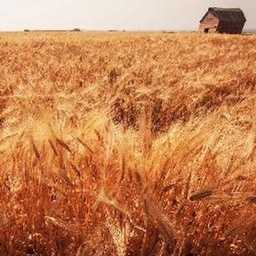
Articles
-
2 weeks ago |
daily.sevenfifty.com | Caitlin Miller
Many American wine professionals would argue that just about all of the wines from Australia are undervalued. Even getting U.S. consumers to buy well-known and once highly popular Shiraz can be an uphill battle. But many would also argue that the battle is well worth it. That’s certainly true of the wines from Gippsland, a large yet little-known wine region in southeast Victoria that’s home to mainland Australia’s coolest terroirs.
-
1 month ago |
daily.sevenfifty.com | Caitlin Miller
While many sectors of the beverage alcohol industry are struggling with declining sales, the no- and low-alcohol category continues to grow. The IWSR predicts the category will see a compound annual growth rate of more than four percent between 2024 and 2028. And while non-alcoholic wine is experiencing growth, its sales are more established categories like non-alcoholic beer.
-
2 months ago |
daily.sevenfifty.com | Caitlin Miller
When establishing a vineyard, it’s nearly impossible to make a standalone decision. Every element, from the climate to the tractor, is part of a connected system. So when it comes to vine density—that is, how closely spaced vines are from one another—the ideal choice will largely depend on a suite of other factors. At Chateau Montelena in Napa Valley, winemaker Matt Crafton has been working on two major replanting efforts over the past several years.
-
Mar 6, 2025 |
daily.sevenfifty.com | Caitlin Miller
There are few grape varieties as closely linked to a specific style of wine as Shiraz. For many, the only thing that separates Shiraz, as it’s dubbed in Australia, from Syrah, as it’s known in France, the U.S., and beyond, is style. The archetype of Australian Shiraz is full-bodied with jammy fruit flavors and high alcohol, while Syrah—the same exact grape—evokes a sense of nuance, balance, and freshness. Yet Shiraz—or Syrah—grown in Australia is not inherently ripe, jammy, or high in alcohol.
-
Dec 16, 2024 |
daily.sevenfifty.com | Caitlin Miller
When it comes to Prosecco sales, it may be tempting to dismiss the entire category as a predictable cash cow. It’s no secret that sales are up, dominated by a vast sea of affordable, entry-level, DOC bottlings, which reached a record volume of 500,000 hectoliters bottled in July 2024 thanks to U.S. demand. While the above data suggests that many U.S. wine consumers enjoy Prosecco, it also points to a focus on a singular category.
Journalists covering the same region

Kyle Morel
Staff Writer at New Jersey Herald
Kyle Morel primarily covers news in New York City, New York, United States and surrounding areas.

Heidi Waleson
Opera Critic at The Wall Street Journal
Heidi Waleson primarily covers news in New York City, New York, United States and surrounding areas.

Andy Milone
Writer at Freelance
Andy Milone primarily covers news in New York City, New York, United States and surrounding areas including Newark and Jersey City.

Chris Pedota
Multimedia Producer, Editor and Photographer at NorthJersey.com
Chris Pedota primarily covers news in Northern New Jersey, United States, including areas around Bergen, Passaic, and Morris counties.
Mike Condon
Editor at Roxbury Register
Editor at The Citizen of Morris County
Editor and News Reporter at New Jersey Hills Media Group
Editor and News Reporter at New Jersey Hills Media Group
Mike Condon primarily covers news in the New York metropolitan area including parts of New Jersey and surrounding regions.
Try JournoFinder For Free
Search and contact over 1M+ journalist profiles, browse 100M+ articles, and unlock powerful PR tools.
Start Your 7-Day Free Trial →